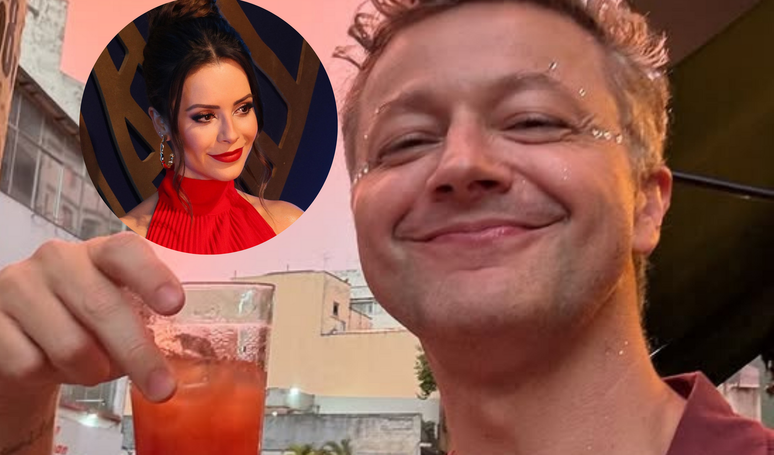Companies embrace the concept of the circular economy and invest in assets ranging from biodegradable single-use items developed from açaí to digital currency generated after waste collection certification
A practice so far reserved for a few companies, the use of waste has become the main focus of enterprises focused on the production and consumption of sustainable products. The movement has gained strength in the face of a landscape increasingly driven by discussions on the topic climate changes.
The creative agency Hand Atelier, for example, has partnered with the startup Polimex Bioplásticos and Moinho Produtos Sustentáveis to sell biodegradable and compostable (which can decompose) disposable items made from waste açaí.
Items such as cups, dessert spoons, measuring cups and a school kit are currently on sale. The partnership involves the creation of new focused lines hotel chainsin addition to the segments of Bars and restaurants and cosmetic packaging and accessories.
Using GNP (biodegradable natural plastic) as a raw material, the idea is that these materials can decompose and transform into organic fertilizer in just 154 days. This prevents tons of plastic from being released into the environment.
“GNP has nothing petrochemical in its composition and does not need a compost container to degrade. It can become a fertilizer for the soil without anything toxic and produce microplastic, which has a significant impact on the environment, as it already has been found in breast milk and water, precisely because of this difficulty in degrading”, explains the commercial director of Polimex Bioplásticos, Gabriel Lysias.
The executive emphasizes that the partnership is designed to encourage the principles of the circular bioeconomy, bringing to market personalized and sustainable products that meet the specific needs of customers.
Lysias notes that the bioplastic market has grown and gained size in recent years, although it is still not comparable to the amount of plastic produced by the petrochemical industry. He points out, however, that the amount of waste produced by agro-industry in Brazil offers a great competitive advantage for the country compared to Europe.
Furthermore, in terms of price there is also a big advantage. “Petrochemical waste isdollarized, while GNP, traded in real terms, does not suffer these exchange rate fluctuations. So it pays off for both Brazilian and international companies. But it is worth underlining that we are not competitive on price, but on value We work with brands that understand the benefit of having this product, because the consumer understands this added value,” he explains.
Hand Atelier’s commercial director, Alejandro Perren, argues that today price is, in fact, a point to consider in the expansion of biodegradable products, but emphasizes that the benefits are even greater. “The greater the added value of that piece, the consumer doesn’t even question it. You have to focus on the concept and not on the price. Typically there is a higher price, but the greater the production, the tendency is that it will open more doors into this market.”
Betting that the demand for these products will grow more and more with the rise of the ESG agenda, brands hope to recover the initial investment for the production of biodegradables by the end of 2019. 2024.
Another strong point in the waste market is the startup Recicla-se, which turns waste collection into digital currency. Through a customized subscription model, the company certifies companies and government agencies that recycle their waste and monitors the entire useful life of the products.
After certification, companies receive carbon tokens (electronic representation of a real asset to facilitate asset trading) in recognition of the positive impact generated. In practice they work like cryptoassets or digital currencies and can be sold.
The CEO of Recicla-se, Matheus Vitor, underlines that the strong point of the project is not only the transformation of waste into a precious asset, but the impulse given to the practice of the circular economy in companies.
The concept associates the economic development of a country with the best use of natural resources and the priority of the most durable and renewable raw materials.
Furthermore, the executive points out that the practice, in itself, is positive as it tracks everything that happens to the product from the beginning of its useful life, avoiding greenwashing (false disclosure about sustainability) in companies.
“By turning waste into a token, all data about the useful life of that product and that waste will be stored on the blockchain (digital booklet). This makes the process much safer and more reliable,” explains Vitor.
Growing demand
This shift in companies’ positioning on waste follows not only a corporate trend – considering that industry giants have embraced ESG criteria – but also consumer demand.
A survey conducted by e-commerce platform Mercado Livre showed that consumption of sustainable items in Brazil grew by 40% between April 2022 and March 2023, above the Latin American average of 30%. The interest is reflected in the search for innovative products. In 2022 alone, more than 7.6 million products considered sustainable were consumed in Latin America, of which approximately 60% came from Brazil.
Across Latin America there has been an 8% increase in the number of brands and entrepreneurs selling sustainable products, now exceeding 57,000. Of these, 37% are located in Brazil, where growth has been greatest, reaching 15% compared to the last survey.
Experts point out that the search for sustainable products has grown not only among consumers, but also among companies. Matheus Vitor points out that companies that position themselves as sustainable want to show effective actions that can be taken really seriously and avoid possible questions.
Source: Terra
Rose James is a Gossipify movie and series reviewer known for her in-depth analysis and unique perspective on the latest releases. With a background in film studies, she provides engaging and informative reviews, and keeps readers up to date with industry trends and emerging talents.






